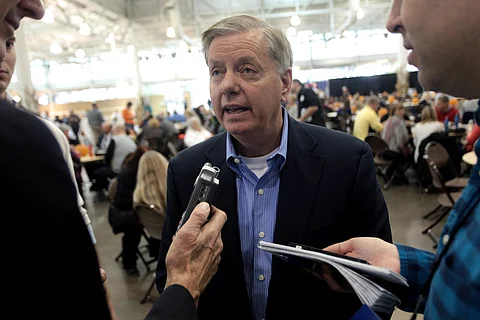

U.S. Senator Lindsey Graham is continuing to push forward with his sweeping sanctions legislation that would impose 500% tariffs on countries purchasing Russian energy, including major buyers like China and India.
Formally titled the Sanctioning Russia Act of 2025, the bill was introduced in April and is currently under review by the Senate Committee on Banking, Housing, and Urban Affairs. It must clear committee approval and proceed through other legislative steps before reaching the Senate floor for a full vote, and eventually, the House of Representatives.
In an interview with MSNBC on Sunday, Graham referred to the measure as an “economic bunker buster” designed to pressure Russia, China, and Iran, saying the sanctions would give the U.S. leverage to bring Russian President Vladimir Putin to the negotiating table.
However, President Donald Trump has not endorsed the bill, and internal White House reports suggest his administration has been urging Graham to soften the bill’s language. Specifically, aides have reportedly pushed for replacing mandates such as “will” with more discretionary terms like “may,” in order to avoid legally obligating the president to enforce the punitive tariffs.
Tensions between Trump and Graham appeared to surface last Friday, when the president warned the senator to be “careful” with his words following comments Graham made in Ukraine, where he encouraged continued resistance against Russia—contrary to the White House’s more cautious position.
Although framed as a tool to isolate Russia, the legislation would also spark a severe trade conflict with China and India, who remain Russia’s largest energy clients. The U.S. previously imposed 145% tariffs on Chinese goods in April and May, triggering a brief trade war. That conflict was temporarily defused after a deal was reached in Geneva on May 12.
Codifying 500% tariffs into U.S. law would almost certainly derail any remaining efforts at U.S.-China trade cooperation—a likely reason Trump has distanced himself from the proposal.
Despite the growing controversy, Graham has claimed that 84 senators have signed on as co-sponsors—enough to override a presidential veto if the bill passes through both chambers of Congress.